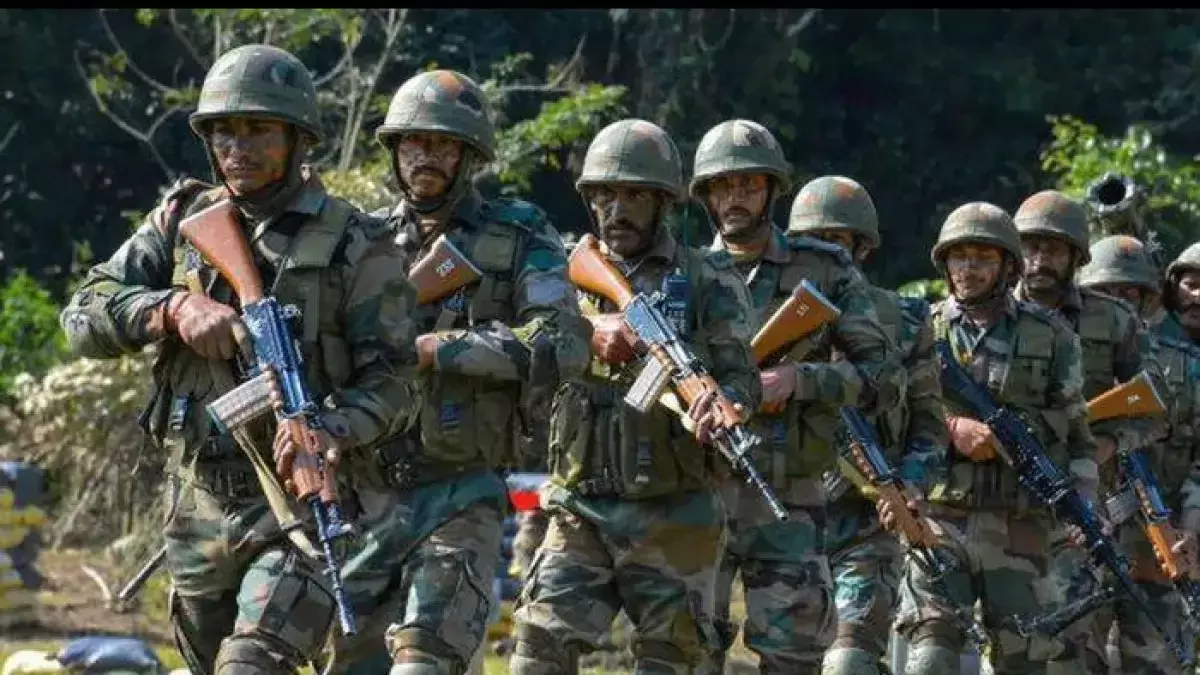A eulogy to timeless valour
Paradigms have changed over centuries, but soldiers’ unflinching fighting spirit remains the same, which should find resonance in the vibrant tapestry of Indian language literature

The ethereal realm of valour of the soldier is universal and has been a paramount source of strength for inspiring civilizations through times immemorial.
Many of us who have been brought up on a deeply embedded edifice of the English language, effortlessly recall Alfred Tennyson’s historic elegy ‘Charge of the Light Brigade’ to capture the essence of the Battle of Balaclava fought in the year 1854. Tennyson had eulogized,
Theirs not to make reply,
Theirs not to reason why,
Theirs but to do and die.
Into the valley of death
Rode the six hundred.
The fearless
Somewhere albeit it hits us, when we chance upon a nostalgia-tinged, but a somewhat glum admission in our hearts that the Indian folklore had dedicated immensely to the spirit of valour. Did we forget our own tradition of extolling bravery? The lyrical renditions of the Baul singers of Bengal and the stirring accounts of the warrior brothers, Alha and Udal of Bundelkhand, had brought home the mystique of the warrior to the populace. Some lines in the instantly exhorting accounts written by Shyam Narayan Pandeya in his poetic treatise in Hindi on the battle of Haldighati are poignant. He wrote:
Sacrificed himself on the altar,
In the supreme reverence of mother India,
Fulfilled his ultimate desire,
To bestow himself on to death.
In an equally touching account, Kanhaiya Lal Sethia in his poem in Rajasthani on the secret surrender parleys between Raja Man Singh, the Commander-in-Chief of Emperor Akbar, and Maharana Pratap, the king of Mewar, resurrects the intense depth of emotion in the Maharana,
Have the Himalayas melted,
Has the sun lost his heat,
Has the earth swayed from its moorings,
Agonized the king in the womb of his heart.
History recalls that ultimately, the Maharana did not surrender and died on the battlefield. I am deeply saddened by my own deficiencies in Indian languages in not being able to trace the vast anthology of literature in languages that permeate our nationhood. But to forget the warring spirit of Tipu sultan would be sacrilegious. The betrayed Tipu, in spite of an impending defeat, did not falter but fought a hand-to-hand battle with the British soldiers. Mortally wounded, he died at the battlefield at Watergate.
It is believed that with him finished the last of the resistance to colonial rule. Within the fort, there is a small memorial stone which inscribes that Tipu Sultan, the tiger of Mysore, met his death fighting British soldiers on that fateful day. “Even English soldiers were so impressed with the valour of Tipu sultan that Col Wellesley erected a plaque at the spot where Tipu sultan’s body was found”.
The fighting spirit of a soldier
Let me, in the culmination, address a cardinal issue which raises its head among the purveyors of fighting spirit amongst the community of soldiers. There is a belief that with the current philosophies and technologies making deep inroads into the process of warfare, the need for gung-ho methods is vastly diminished. This is far from the truth.
Not only would the soldier in the battlefield continue to be called upon to demonstrate his basic goal of neutralising the adversary, but he may also have to show his mettle in a far vaster battlespace. With the strengthening of fourth-generation warfare practices, the process of war is entering into our societies. The soldier now is a peacekeeper and peace-enforcer, whether in his country or at locales spread over the troubled world. The people and societies will need his support even more.
I wrote this editorial in an earlier issue of Salute devoted to “Fighting spirit”, but I repeat it as its relevance remains deep and abiding at the current juncture, as our troops confront the perfidious People's Liberation of China at the Depsang Plains.
The writer is Air commodore and was awarded a Vayu Sena Medal for gallantry during the 1971 War. Views expressed are personal




